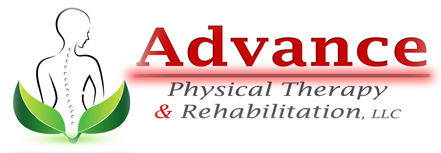
Tension, Sinus, Cluster Headaches and Migraines
What are tension, sinus, cluster headaches and migraines?
Everyone experiences headaches from time to time. These types of pains can occur as the result of stress, dehydration, or poor diet. However, some types of headaches are more serious than others. For instance, migraine headaches can last up to 72 hours, and they are often accompanied by nausea and sensitivity to light. In addition, cluster headaches are typified by bursts of short but incredibly intense headaches that occur every day. While mild forms of headaches go away over time, some serious forms require medical treatment.
What causes tension, sinus, cluster headaches and migraines?
Different types of headaches are caused by different phenomena. Sinus headaches are caused by inflammation in the sinus passageways, and tension headaches are caused by contractions in the face and head muscles. Triggers for headaches and migraines vary from person to person, but common types of triggers include eating foods that contain Tyramine, especially in aged and fermented foods such as cheeses, smoked fish, cured meats, red wine, soy sauce, sauerkraut and beer on tap, skipping meals, hormonal changes, and unusually intense sensory stimulation. Other factors that trigger headaches and migraines include smoking, exercise, sex, alcohol and high consumption of caffeine.
What are symptoms of tension, sinus, cluster headaches and migraines?
Symptoms of tension headaches include pain or pressure, mild to moderate, pain in front, top and sides of the head, pain beginning gradually and occurring middle of the day, lasting 30 mins to several days. Headaches can be in the morning with symptoms of chronic fatigue, irritability, mild sensitivity to noise and light. Typically there is difficulty with concentrating, falling and staying asleep.
Symptoms of migraine headaches include throbbing, pounding moderate to severe pain in the whole head or changing sides of the head. People suffering with migraines can have blurred vision, nausea, vomiting, abdominal pain, upset stomach, sensitivity to noise, lights and smells. As well as experience fatigue, dizziness, loss of appetite and flashing lights, spots and aura in the eyes.
Symptoms of sinus headaches include constant deep pain in the forehead, bridge of the nose and cheek bones. Pain increases with straining or sudden head movements, a feeling of fullness in the ears, nasal discharge, face swelling and fever.
Symptoms of cluster headaches include constant burning, piercing, throbbing pain one sided only. Pain is located in behind the eye, lasting a short time 30 mins to 2 hours. The headaches disappear than reoccur again later in the day, especially at night and occurring regularly at the same time of the day. Most people suffer from cluster headaches 1 to 3 headaches a day and some up to 6 or 8 a day.
How are tension, sinus, cluster headaches and migraines diagnosed?
Headaches with clear causes, such as tension and sinus headaches, are easy to diagnose. Since the causes of migraines and cluster headaches are unknown, however, doctors have to perform physical examinations, review your medical history, and rule out any other possibilities before diagnosing you with these mysterious conditions.
How are tension, sinus, cluster headaches and migraines treated?
Sinus headaches can be treated by antihistamines or decongestants, and tension headaches generally disappear as you reduce sources of stress in your life. Various prescription drugs have been developed for the prevention of cluster headaches and migraines, but physical therapy have also been shown to be effective against these types of headaches. At Advance Physical Therapy & Rehabilitation our treatments have been shown to provide relief from the symptoms of headaches and migraines. The techniques we use to treat includes application of electrical stimulation, ultrasound, ice and heat packs, gentle stretching, strengthening exercises, postural correction, relaxation techniques, deep tissue massage, pain relief exercises, low impact aerobic conditioning. Our therapists are also skilled in the Neuro Emotional Technique which uses the mind and body connection to help improve physical conditions using a methodology of finding and removing neurological imbalances related to the physiology of unresolved stress.


